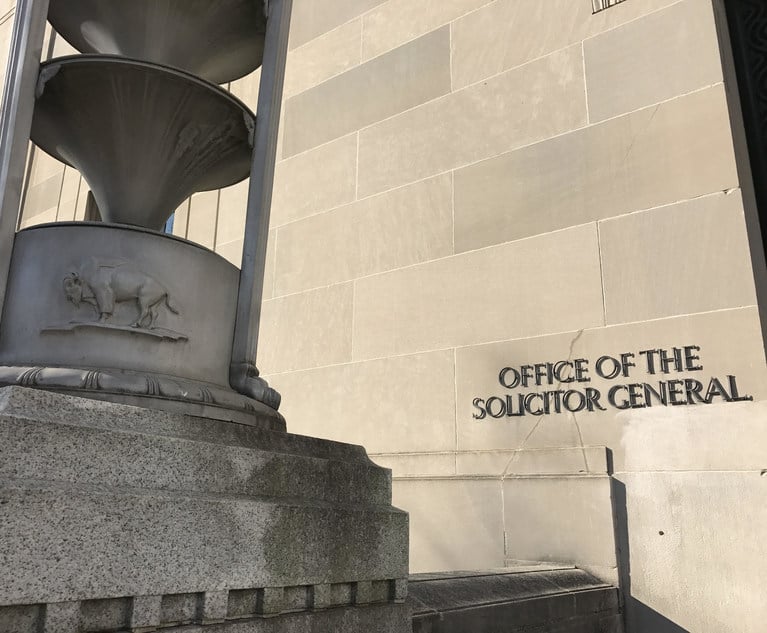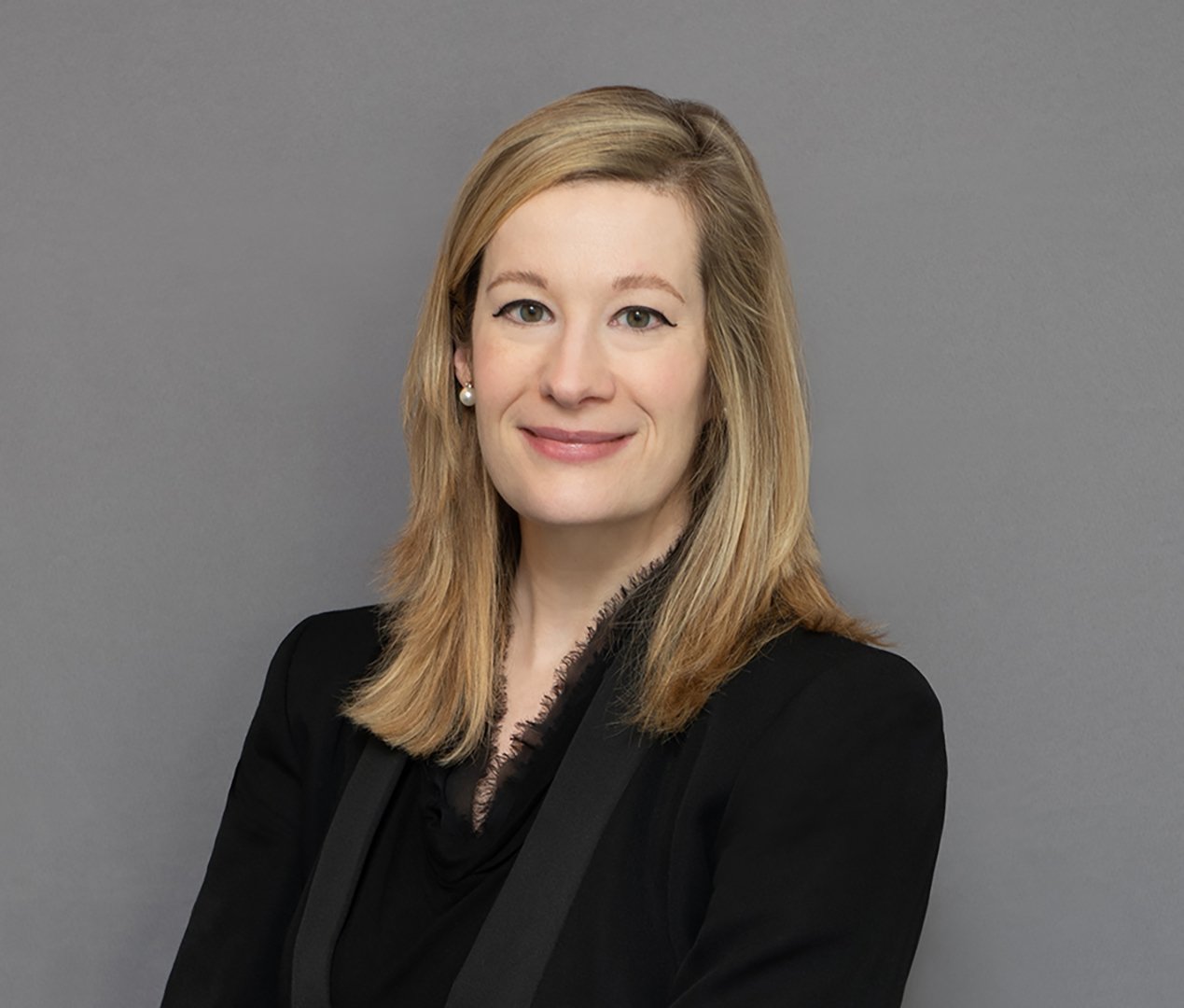 Interior of the U.S. Supreme Court courtroom. (Credit: Franz Jantzen/Collection of the U.S. Supreme Court)
Interior of the U.S. Supreme Court courtroom. (Credit: Franz Jantzen/Collection of the U.S. Supreme Court) The Marble Palace Blog: Will Opinion Announcements Fade Away?
Opinion announcements from the bench, a long tradition that is an important part of justices' public roles, may become a thing of the past
November 30, 2021 at 09:49 AM
4 minute read
Thank you for reading The Marble Palace Blog, which I hope will inform and surprise you about the Supreme Court of the United States. My name is Tony Mauro. I've covered the Supreme Court since 1979 and for ALM since 2000. I semiretired in 2019, but I am still fascinated by the high court. I'll welcome any tips or suggestions for topics to write about. You can reach me at [email protected].
Supreme Court justices have announced their opinions from the bench "since the first decision of the Supreme Court in 1792," according to Bernard Schwartz, the legendary late Supreme Court scholar.
I wrote a law review article in 2013 about the long history of opinion announcements, and came to the conclusion that "since the court's founding, justices have treated opinion announcements as an important part of their public roles." And they are especially meaningful when justices announce their dissents from the bench.
The tradition of opinion announcements fell away from necessity when the pandemic struck last year. The justices worked from home, and the public was not allowed into the court, so an oration from the bench was obsolete. Instead, opinions were posted on the court's website, without the justices' traditional oral announcements from the bench.
But the justices returned to the courtroom when the current term began on Oct. 4, and with them came social-distanced lawyers involved in cases, credentialed journalists, law clerks and a few others. So, in theory, the justices could have resumed tradition and taken the bench to announce opinion summaries when their first opinions of the term were ready to be handed down.
That first opinion of the term, Mississippi v. Tennessee, came on Nov. 22, labeled by the court as an "Opinion Issuance Day," a relatively new category on the court website's calendar. But alas, the justices did not take the bench, including Chief Justice John Roberts Jr., who authored the opinion. It was posted online at 10 a.m. when Roberts would normally have announced the opinion from the bench.
This new arrangement was quickly noticed.
Nina Totenberg, NPR's long-standing Supreme Court reporter, expressed concern on Twitter. "Is #SCOTUS abandoning another tradition that harkens back centuries & provides a small amt of transparency? The ct will issue opinions Mon, online, w/o the usual announcement from the bench. That was understandable when they were not sitting, but not now, when they r in person."
An unnamed Totenberg Twitter follower offered a guess as to why opinion announcements may have shut down: "Kagan wrote a dissent that is on fire & they don't want her reading from the bench?"
That is an unlikely reason for the court to end opinion announcements, but the comment makes a point. Oral dissents from the bench are a class in themselves, taking place only a handful of times each year, but they are powerful because of their rarity. "Oral dissents identify some of the Supreme Court justices' most deeply held minority opinions," according to the comprehensive tally of Supreme Court oral dissents collected in the Law Library Journal. It seems likely that current-era dissenters such as Justices Elena Kagan and Sonia Sotomayor would want vocal dissents to persist.
On the other hand, some justices dislike oral announcements altogether, whether they are spoken by the majority author or the dissenters. The brevity of the announcements worries justices because they can be oversimplified or turned into a form of "spin control." They don't want the public to believe that an opinion announcement stands as a precise replica of the opinion itself. That is why, I've been told, that the audio of opinion announcements was traditionally released to the public on a delayed basis.
In the 1940s, Justice Felix Frankfurter once ad-libbed an opinion announcement and gave different rationales for the opinion, according to Justice William O. Douglas in his memoir. As the session ended, Justice Harlan Fiske Stone said to Frankfurter, "By God Felix, if you had put all the stuff in the opinion, never in my life would I have agreed to it."
NOT FOR REPRINT
© 2025 ALM Global, LLC, All Rights Reserved. Request academic re-use from www.copyright.com. All other uses, submit a request to [email protected]. For more information visit Asset & Logo Licensing.
You Might Like
View All
Trump's DOJ Withdraws Opposition to Law Banning Trans Care for Minors

Supreme Court Denies Trump's Request to Pause Pending Environmental Cases

January Petitions Press High Court on Guns, Birth Certificate Sex Classifications

‘Diminishing Returns’: Is the Superstar Supreme Court Lawyer Overvalued?
Trending Stories
- 1With DEI Top of Mind, Black Judges Discuss Growing Up During Segregation, Efforts to Diversify the Profession
- 2Big Law's Middle East Bet: Will It Pay Off?
- 3'Translate Across Disciplines': Paul Hastings’ New Tech Transactions Leader
- 4Milbank’s Revenue and Profits Surge Following Demand Increases Across the Board
- 5Fourth Quarter Growth in Demand and Worked Rates Coincided with Countercyclical Dip, New Report Indicates
Who Got The Work
J. Brugh Lower of Gibbons has entered an appearance for industrial equipment supplier Devco Corporation in a pending trademark infringement lawsuit. The suit, accusing the defendant of selling knock-off Graco products, was filed Dec. 18 in New Jersey District Court by Rivkin Radler on behalf of Graco Inc. and Graco Minnesota. The case, assigned to U.S. District Judge Zahid N. Quraishi, is 3:24-cv-11294, Graco Inc. et al v. Devco Corporation.
Who Got The Work
Rebecca Maller-Stein and Kent A. Yalowitz of Arnold & Porter Kaye Scholer have entered their appearances for Hanaco Venture Capital and its executives, Lior Prosor and David Frankel, in a pending securities lawsuit. The action, filed on Dec. 24 in New York Southern District Court by Zell, Aron & Co. on behalf of Goldeneye Advisors, accuses the defendants of negligently and fraudulently managing the plaintiff's $1 million investment. The case, assigned to U.S. District Judge Vernon S. Broderick, is 1:24-cv-09918, Goldeneye Advisors, LLC v. Hanaco Venture Capital, Ltd. et al.
Who Got The Work
Attorneys from A&O Shearman has stepped in as defense counsel for Toronto-Dominion Bank and other defendants in a pending securities class action. The suit, filed Dec. 11 in New York Southern District Court by Bleichmar Fonti & Auld, accuses the defendants of concealing the bank's 'pervasive' deficiencies in regards to its compliance with the Bank Secrecy Act and the quality of its anti-money laundering controls. The case, assigned to U.S. District Judge Arun Subramanian, is 1:24-cv-09445, Gonzalez v. The Toronto-Dominion Bank et al.
Who Got The Work
Crown Castle International, a Pennsylvania company providing shared communications infrastructure, has turned to Luke D. Wolf of Gordon Rees Scully Mansukhani to fend off a pending breach-of-contract lawsuit. The court action, filed Nov. 25 in Michigan Eastern District Court by Hooper Hathaway PC on behalf of The Town Residences LLC, accuses Crown Castle of failing to transfer approximately $30,000 in utility payments from T-Mobile in breach of a roof-top lease and assignment agreement. The case, assigned to U.S. District Judge Susan K. Declercq, is 2:24-cv-13131, The Town Residences LLC v. T-Mobile US, Inc. et al.
Who Got The Work
Wilfred P. Coronato and Daniel M. Schwartz of McCarter & English have stepped in as defense counsel to Electrolux Home Products Inc. in a pending product liability lawsuit. The court action, filed Nov. 26 in New York Eastern District Court by Poulos Lopiccolo PC and Nagel Rice LLP on behalf of David Stern, alleges that the defendant's refrigerators’ drawers and shelving repeatedly break and fall apart within months after purchase. The case, assigned to U.S. District Judge Joan M. Azrack, is 2:24-cv-08204, Stern v. Electrolux Home Products, Inc.
Featured Firms
Law Offices of Gary Martin Hays & Associates, P.C.
(470) 294-1674
Law Offices of Mark E. Salomone
(857) 444-6468
Smith & Hassler
(713) 739-1250








